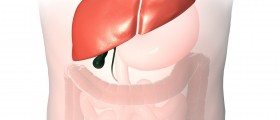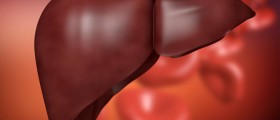
Liver Damage and release of Liver Enzymes
Elevated liver enzymes is a problem that may affect both, adults and children. It is actually a consequence of damage of many liver cells. Namely, enzymes are normally located inside the liver cells and once the cells get damaged, they are released into the blood. Rapid destruction of numerous liver cells results in significant and rapid increase of liver enzymes. The very presence of liver enzymes in the blood can be easily confirmed by a simple blood test and symptoms and signs patients are experiencing generally depend on the underling cause or illness that has led to liver damage in the first place.
Elevated Liver Enzymes in Children
There are different medical conditions and diseases capable of damaging liver cells. Some of them affect the organ directly, while others affect other organs and organ systems in the body and indirectly damage liver cells leading to increase of liver enzymes.
As for conditions affecting the liver, the most common illnesses associated with elevated liver enzymes include liver infections and several more liver diseases. Liver infections are caused by different viruses which directly attack liver cells, enter them, start to multiply inside these cells and eventually cause their destruction. This way enzymes get released and accumulate in the blood. Such course of action occurs in all types of hepatitis including A, B, C, and two rare types E, F and D hepatitis. Furthermore, liver diseases such as liver cirrhosis, biliary atresia or others may also affect children and cause elevation of liver enzymes.
One more potential cause of elevated liver enzymes in children is unhealthy diet. The problem can be closely related to uncontrollable consumption of junk food, sweets and excessive drinking of soft drinks. Unhealthy diet is also associated with the lack of certain vitamins. Parents may opt for vitamin supplements without previously consulting a doctor and cause more harm than benefit and induce increase in liver enzymes.
In some children the problem may originate from intake of certain drugs such as some pain killers (especially if they are given in large doses). For example, acetaminophen and ibuprofen may cause the problem.
And finally, in rare occasions accidental inhalation of household products and chemicals used to clean one's home may cause damage to liver cells and subsequent increase of liver enzymes.
- www.cdc.gov/tb/education/corecurr/pdf/chapter5.pdf
- www.cdc.gov/tb/publications/ltbi/treatment.htm
- Photo courtesy of BodyParts3D by Wikimedia Commons: commons.wikimedia.org/wiki/File:Liver_03_superior_view.png

















Your thoughts on this
Loading...